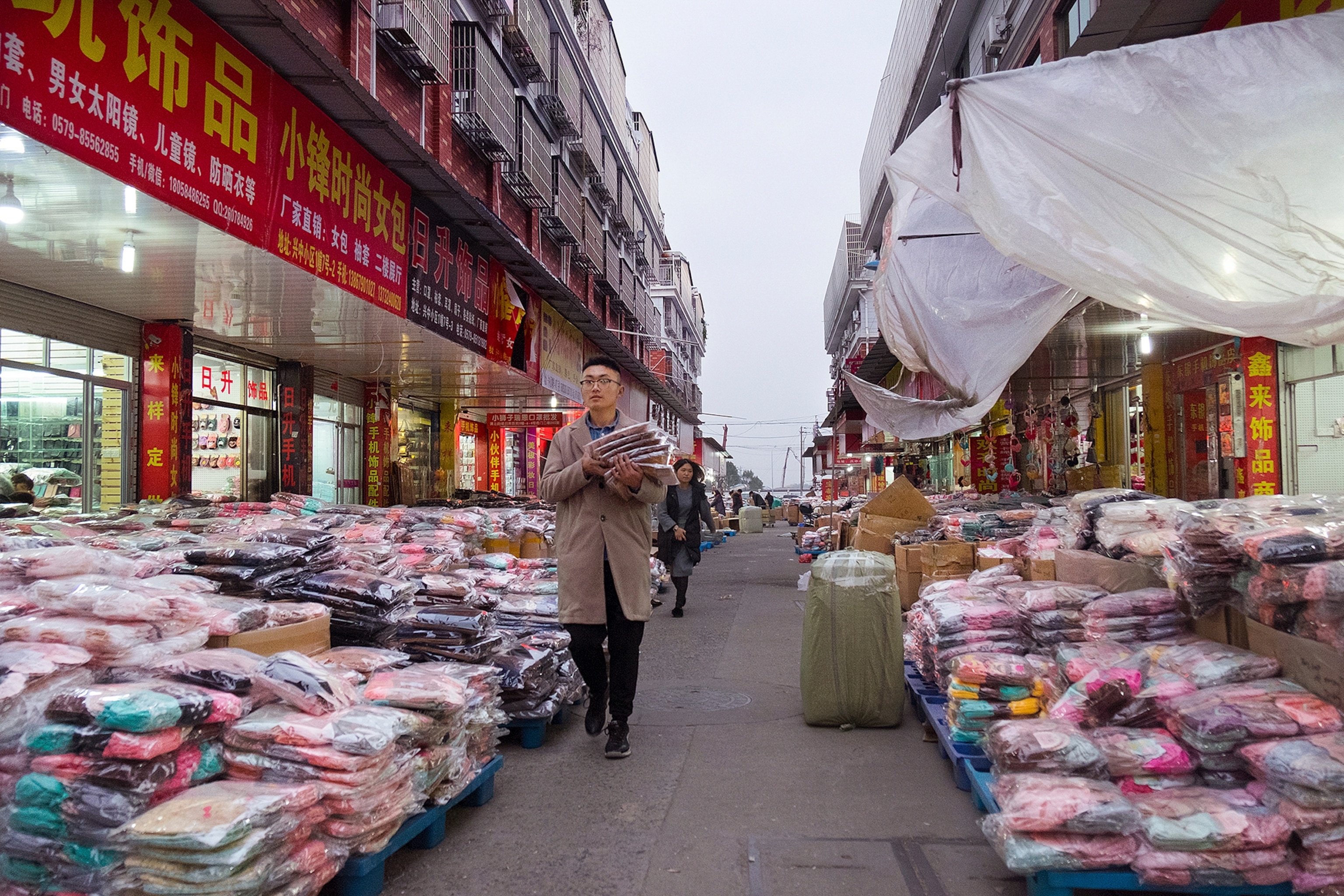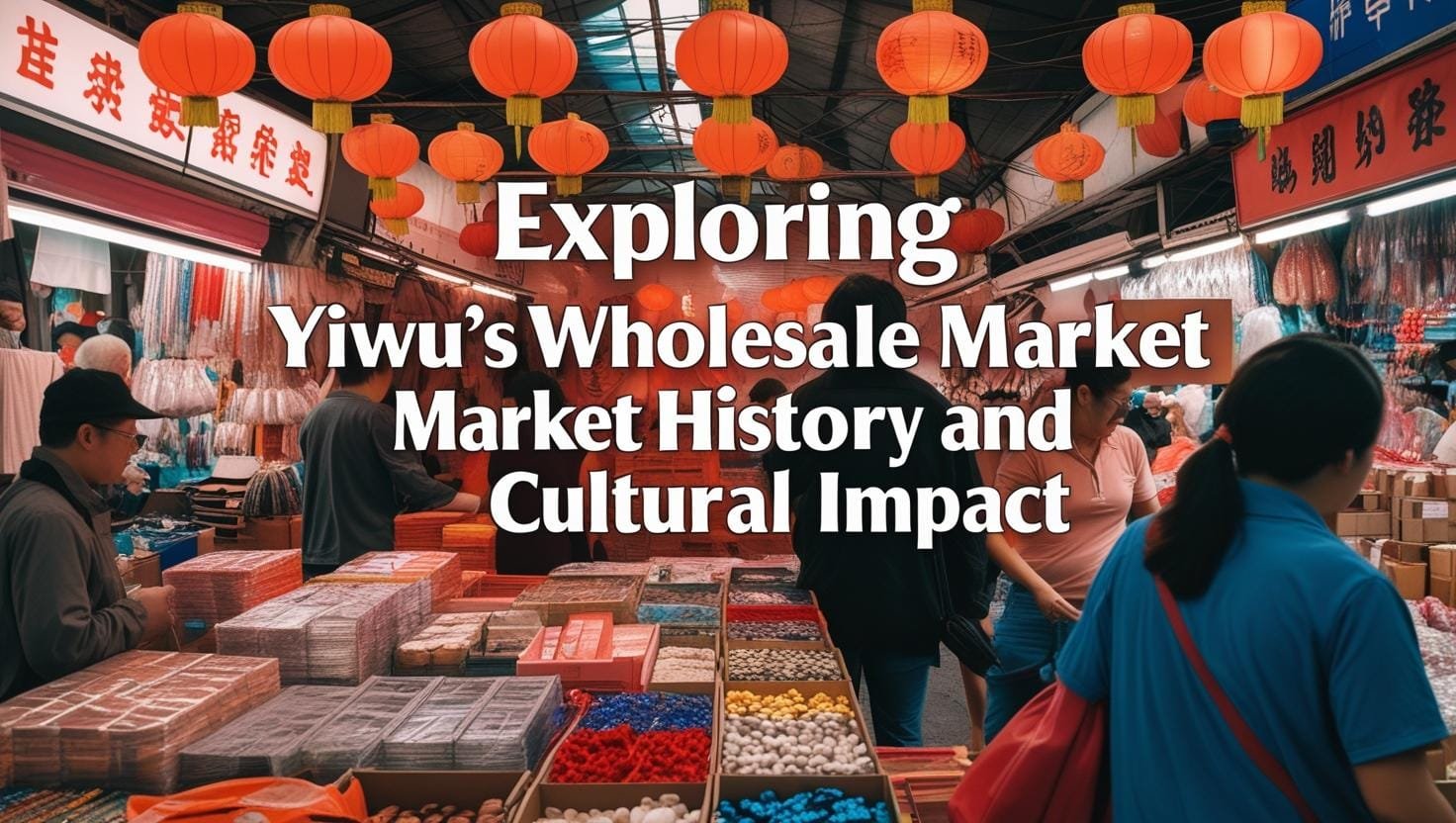Exploring Yiwu’s Wholesale Market History and Cultural Impact
Imagine wandering through a bustling labyrinth of stalls, where the air hums with negotiations in multiple languages and the shelves overflow with everything from toys to textiles. This is Yiwu’s Wholesale Market, a cornerstone of Yiwu Wholesale Market History and a vibrant testament to China’s trade evolution. For travelers eager to dive into China trade history, Yiwu offers an unparalleled blend of commerce and culture, making it a must-visit for anyone on a China cultural tour. Here at jusha.travel, we love sharing tips to make your China journey unforgettable, and this post will guide you through the fascinating story of Yiwu, highlighting its Yiwu cultural heritage and top cultural attractions in Yiwu. Whether you’re a seasoned traveler or a curious culture enthusiast, join us as we uncover the secrets of this dynamic destination.

The Rich History of Yiwu’s Wholesale Market
Yiwu’s Wholesale Market didn’t emerge overnight; its roots run deep into Yiwu Wholesale Market History, dating back to the 17th century. It all began with humble origins in the 1700s, when local farmers and traveling traders known as “feather-candy men” exchanged goods like candy for feathers used as fertilizer and cleaning tools. This early bartering system, as detailed in sources like Yiwu Market History – How Yiwu Market Was Born?, laid the foundation for what would become a global trading powerhouse. These traders gradually shifted from agriculture to entrepreneurship, fostering a spirit of innovation that defines Yiwu today.
Fast-forward to the mid-20th century, and the market faced significant challenges under Communist governance starting in 1949. Private trade was suppressed as part of efforts to eradicate capitalism, with strict rules prohibiting farmers from trading, restricting the sale of industrial goods, and banning self-employment in wholesale. Despite this, underground networks of “walking traders” persisted, keeping the flame of commerce alive. It wasn’t until the economic reforms of the early 1980s that Yiwu’s government officially established the market in 1982, transforming a simple drainage ditch near Huqingmen Street into the iconic Yiwu International Trade City, often called Futian Market.
This period of growth and modernization is a highlight of China trade history, as the market expanded from a few stalls to five major districts by the late 20th century. Today, it attracts around 220,000 visitors daily and boasts an import-export value exceeding RMB 614 billion annually, according to insights from The Yiwu market in China: the world’s largest wholesale market. For those planning a Yiwu travel guide adventure, visiting these districts offers a hands-on lesson in resilience and adaptation. Practical tip: If you’re traveling to Yiwu, arrive early in the morning to beat the crowds and use apps like WeChat for easy translation—it’s a game-changer for negotiating deals and immersing in local culture.

Cultural Impact and Heritage of Yiwu
Beyond its economic might, Yiwu’s Wholesale Market is a living embodiment of Yiwu cultural heritage, where trade intersects with tradition to create a truly multicultural hub. This market exemplifies “grassroots globalization,” driven by local entrepreneurs rather than top-down policies, as explored in Yiwu: China’s Free-Market City. It’s not just about buying and selling; it’s about the stories of migrants from Africa, the Arab world, Southeast Asia, and beyond who have made Yiwu their home, turning it into a cosmopolitan urban space.
One of the most enchanting cultural attractions in Yiwu is “Exotic Street,” a vibrant enclave filled with Arabic signage, halal restaurants, and Islamic bookstores. This area serves as a nucleus for cultural exchange, where traders from the Middle East and North Africa gather after market hours to share meals and stories. It’s a perfect spot for travelers on a China cultural tour to experience the fusion of global influences with Chinese hospitality. Interesting fact: Yiwu hosts over 200,000 international traders annually, with 70% of its foreign residents hailing from these regions, fostering a sense of community that mirrors China’s broader narrative of openness and adaptation.
The market’s innovative business models, such as clustering similar goods in dedicated zones, have become a model for urban trade worldwide, as noted in Best Yiwu Wholesale Market Guide. This setup not only enhances efficiency but also preserves Yiwu cultural heritage by encouraging social interactions that build lasting relationships. If you’re visiting, don’t miss trying local Zhejiang cuisine—think fresh stir-fries and tea-infused snacks—at nearby eateries; it’s a delicious way to connect with the community. For tech-savvy travelers, use Yiwu’s advanced digital platforms to source goods, reflecting China’s cutting-edge technology in everyday trade.

Industries, Attractions, and Travel Tips for Yiwu
Delving deeper into Yiwu’s allure, the market’s industries and commodity diversity make it a treasure trove for explorers interested in China trade history and modern innovations. Spanning five main districts, each specializes in different goods: District 1 for toys and stationery, District 2 for bags and electronics, District 3 for footwear, District 4 for textiles, and District 5 for imported items like cosmetics and food. This organization, as highlighted in The Yiwu market in China, allows visitors to navigate effortlessly while uncovering Yiwu cultural heritage through the stories behind each product.
As a key Yiwu travel guide highlight, the market serves as a gateway to broader cultural experiences. Beyond shopping, explore nearby attractions like the Yiwu Xiuhu Park for serene walks amid traditional Chinese gardens or the Yiwu International Trade City Museum, which chronicles the market’s evolution. These spots offer insights into how Yiwu has transformed from a poor, mountainous region into a global hub, symbolizing economic resilience and social mobility.
For practical tips on your visit, plan your trip during off-peak seasons to avoid crowds, and consider joining a guided tour for deeper cultural context—many include interactions with local vendors. Food lovers should sample Yiwu’s specialties, such as rice cakes or spicy hot pot, which blend regional flavors with influences from international traders. And if technology piques your interest, note how Yiwu integrates digital tools like QR code payments and e-commerce platforms, aligning with China’s tech-driven future. As you wander, you’ll see how this market not only drives trade but also enriches China cultural tours with its blend of tradition and innovation.

In conclusion, exploring Yiwu’s Wholesale Market is more than a shopping trip—it’s a journey through Yiwu Wholesale Market History, Yiwu cultural heritage, and the broader tapestry of China trade history. From its grassroots beginnings to its role as a multicultural beacon, Yiwu inspires travelers to appreciate the resilience and vibrancy of Chinese culture. Whether you’re seeking cultural attractions in Yiwu or following a Yiwu travel guide for your next China cultural tour, this destination offers endless insights and adventures. Here at jusha.travel, we’re passionate about helping you discover these hidden gems, so visit our site for more inspiring stories and tips on exploring China.
We’d love to hear your thoughts—have you visited Yiwu? Share your experiences in the comments below, check out jusha.travel for more China travel inspiration, or explore related articles like our guides to other cultural hotspots. Safe travels!

